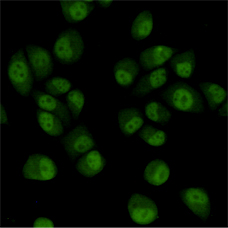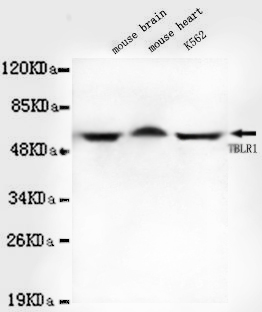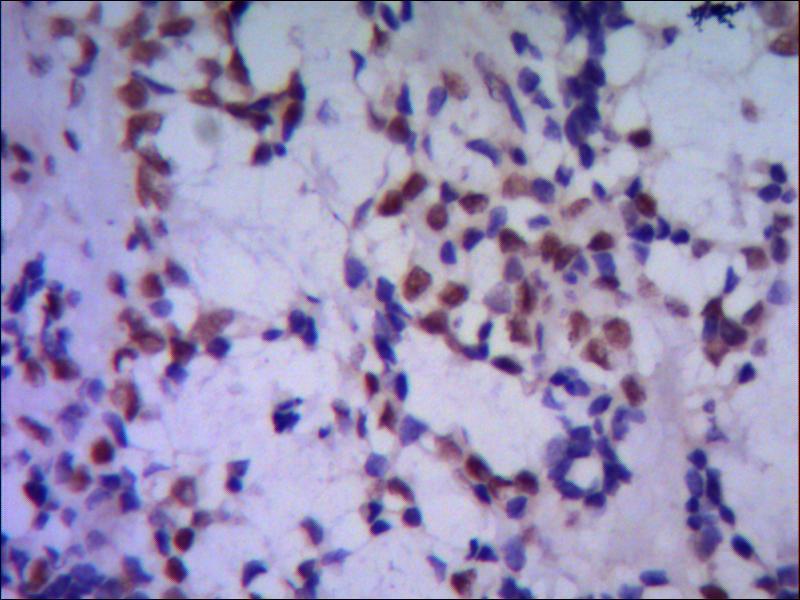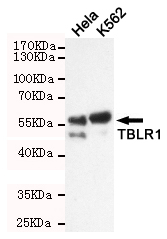-
Product Name
Anti-TBLR1/TBL1XR1 (4F3) Mouse antibody
- Documents
-
Description
TBLR1/TBL1XR1 (4F3) Mouse monoclonal antibody
-
Tested applications
WB, IHC-P, ICC/IF
-
Species reactivity
Human, Mouse
-
Alternative names
C21;DC42;F box like/WD repeat containing protein TBL1XR1;F-box-like/WD repeat-containing protein TBL1XR1;FLJ12894;IRA1;Nuclear receptor corepressor/HDAC3 complex subunit;Nuclear receptor corepressor/HDAC3 complex subunit TBLR1;TBL1 related protein 1;TBL1- antibody
-
Isotype
Mouse IgG1
-
Preparation
Antigen: Purified recombinant human TBLR1 protein fragments expressed in E.coli.
-
Clonality
Monoclonal
-
Formulation
Purified mouse monoclonal in buffer containing 0.1M Tris-Glycine (pH 7.4 150 mM NaCl) with 0.02% sodium azide 50% glycerol
-
Storage instructions
Store at 4°C short term. Store at -20°C long term. Avoid freeze / thaw cycle.
-
Applications
WB: 1/1000
;ICC: 1/200
;IHC: 1/500-1/1000
-
Validations

Immunocytochemistry staining of HeLa cells fixed with 4% Paraformaldehyde and using TBLR1 mouse mAb (dilution 1:200).

Western blot detection of TBLR1 in Mouse brain,Mouse heart and K562 cell lysates using TBLR1 mouse mAb (1:1000 diluted).Predicted band size: 60KDa.Observed band size: 60Kda.

IHC of paraffin-embedded huma breast cancer using anti-TBLR1 mouse mAb diluted 1/500-1/1000

Western blot detection of TBLR1 in Hela and K562 cell lysates using TBLR1 mouse mAb (1:1000 diluted).Predicted band size: 60KDa.Observed band size: 60Kda.
-
Background
Swiss-Prot Acc.Q9BZK7.This gene is a member of the WD40 repeat-containing gene family and shares sequence similarity with transducin (beta)-like 1X-linked (TBL1X). The protein encoded by this gene is thought to be a component of both nuclear receptor corepressor (N-CoR) and histone deacetylase 3 (HDAC 3) complexes, and is required for transcriptional activation by a variety of transcription factors. Mutations in these gene have been associated with some autism spectrum disorders, and one finding suggests that haploinsufficiency of this gene may be a cause of intellectual disability with dysmorphism. Mutations in this gene as well as recurrent translocations involving this gene have also been observed in some tumors.
Related Products / Services
Please note: All products are "FOR RESEARCH USE ONLY AND ARE NOT INTENDED FOR DIAGNOSTIC OR THERAPEUTIC USE"
